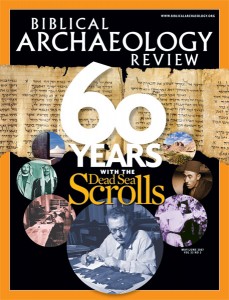
Thomas W. Davis is director of the Cyprus American Archaeological Research Institute. With more than 25 years of archaeological experience, he has excavated in Cyprus, Jordan, Egypt and the United States. The following excerpt was taken from his book Shifting Sands: The Rise and Fall of Biblical Archaeology (Oxford Univ. Press, 2004), in which he discusses the history and future of Biblical archaeology:
[Classical] Biblical archaeology was, in simplest terms, a search for realia. It was an attempt to ground the historical witness of the Bible in demonstrable historical reality. Throughout its history, it was linked to this aim. Only when the archaeological data themselves became recognized as dependent on interpretation for their meaning (in other words, no longer seen as purely objective data) did Biblical archaeology lose its positivist foundation, and collapse ...
Unfortunately, the new Biblical archaeology is an endeavor racked by fierce polemics. The wide-ranging discussion is conveniently referred to as the maximalist-minimalist controversy ... Although the debate is fundamentally a Biblical-theological-ideological argument, each side has used archaeological data to bolster its position. Ironically, archaeology is once again being used as a weapon to further particular Biblical-theological perspectives. The new Biblical archaeology is not in that way very different from the old ...
Already a library member? Log in here.
Institution user? Log in with your IP address.

